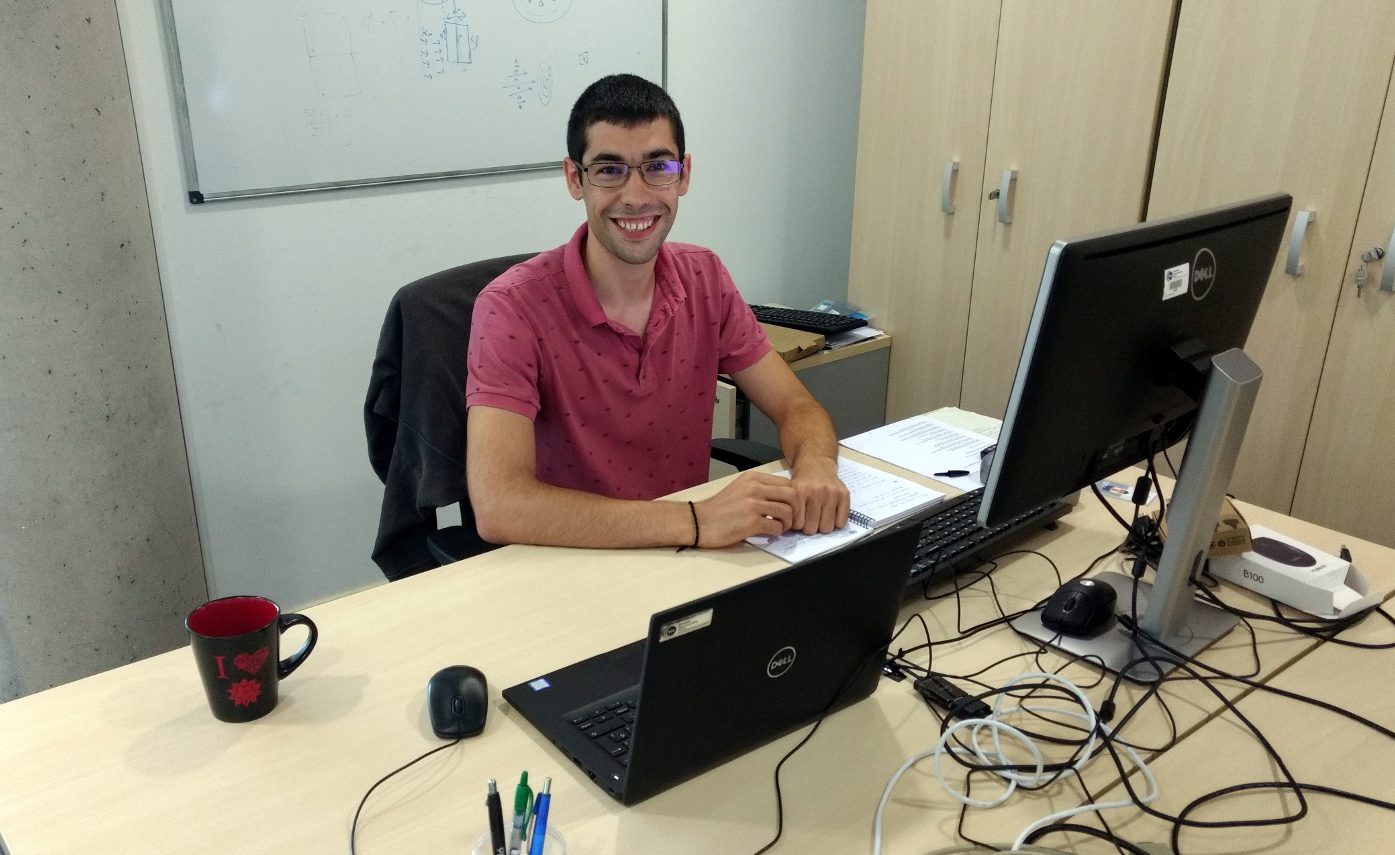
Since the 25 of June until the 6 of September I was one of the two students that participated in the International Summer HPC Internship Programme at Fusion group in Barcelona Supercomputing Center (BSC). We were already presented in an earlier post entitled New summer interns at BSC Fusion Group. Among the two of us, I am Adam Teixidó, and in this post I will relate my experience, which I enjoyed.
From the first day I felt welcomed by the group, I was assigned a tutor, the PhD student Dani Gallart, who made easy the task of installing myself, the new laptop that I would use, connections, Wi-Fi and remote access programs. Of course he also gave me an introduction to fusion physics, tokamaks and plasma heating methods. Moreover, Dani taught me to use PION, which is a program that calculates the ICRF power absorption by ions in the plasma, and he answered my questions that asked for more knowledge.
The project they prepared for me had as focus modelling a deuterium tritium (D-T) scenario in JET with minority D heated by Ion Cyclotron Resonance Frequency (ICRF) heating, which gave very good results in terms of fusion energy released per heating energy used (Q factor), but also had strange results, an unexpected reduction in fusion reactions that remained unexplained.
We studied possibility that beryllium impurities behaved as an absorbent species, both by following Dani’s instructions on what simulations to perform and by reading articles that Dani provided too, and whether adding another heating method, Neutral Beam Injection (NBI), to the scenario would further improve the Q factor.
I got to have a slight grasp on what are the technological difficulties in the development of fusion power, and an idea of the heating mechanisms that are envisaged to be used in fusion power and when they will be effective: for ICRF, when resonant ions are in minority or in a three ion scheme, or for NBI, when injected particle’s energy is high enough to be deposited in the center of the plasma.
What I liked most is to know, while I was reading about fusion reactor designs or on their physics, that this research is aimed to obtain an energy source that can help our society with climate change, reducing pollution, and attaining an almost never-ending energy source.
And last but not least, I also liked the diversity of the research group, having the most varied profiles, academically there are physicists, engineering physicists and computer scientists. Also, there are different cultures, from Spain, Europe and the World, and even different food choices there being vegan and vegetarian.
Thank you to this internship program for allowing students to have a stay in the group!

1 thought on “Experience of a summer intern at our group”